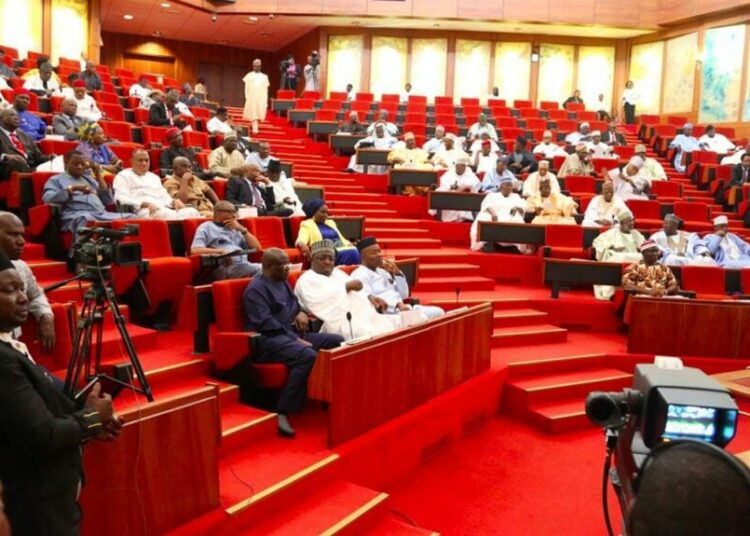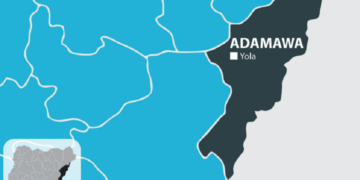The Senate has approved the final reading of a bill aimed at enhancing the Nigeria Deposit Insurance Corporation’s (NDIC) ability to protect depositors, ensure the stability of financial institutions, and foster trust in the banking system.
The legislation, known as the “Nigeria Deposit Insurance Corporation Act No 33 of 2023,” was spearheaded by Senator Mukhail Adetokunbo Abiru of Lagos East, alongside all members of the Senate Committee on Banking, Insurance, and Other Financial Institutions. Abiru presented the committee’s report during the plenary session.
He emphasised that the bill would improve the NDIC’s effectiveness, safeguard its independence and autonomy, and align its operations with contemporary standards and best practices.
The bill consolidates the president’s authority to appoint the chairman and board members of the NDIC, while the Central Bank of Nigeria (CBN), which previously recommended appointees, will now focus on overseeing the corporation.
With the new amendments, the NDIC will prioritise the examination of banks.
Abiru noted that while the NDIC 2023 Act introduced significant enhancements over the 2006 Act, its implementation had been marred by ongoing debates.
He highlighted that stakeholders have consistently advocated for amendments to address various concerns regarding the Act.
“The Nigerian Deposit Insurance Corporation (Amendment) Bill, 2024, is a crucial piece of legislation designed to fortify the Nigerian financial system,” he stated. “The proposed changes will bolster the NDIC’s ability to protect depositors, ensure financial institution stability, and build trust in the banking sector.”
Abiru added that the current bill aims to clarify any discrepancies between the legislation signed by former President Muhammadu Buhari and what was passed by the 9th National Assembly.
He remarked, “To empower the corporation further, we must guarantee its independence in executing its statutory functions, aligning with Section 1(3) of the principal Act.”
The 2023 Act restricts the president’s authority to appoint the managing director and executive directors to individuals recommended by the CBN governor. The new 2024 bill seeks to amend this provision, affirming the president’s appointment powers as outlined in the 1999 Constitution of the Federal Republic of Nigeria (as amended).
Additionally, the bill proposes a review of the principal Act’s provision that designates the permanent secretary of the Ministry of Finance as the board chairman, citing the demanding nature of that role.
The bill also introduces a requirement for the minister of finance to establish an Interim Management Committee for the NDIC within 30 days following the expiration or termination of the board’s tenure. This aims to prevent operational disruptions due to board vacancies.
Abiru emphasised the consensus among stakeholders on the NDIC’s vital role in protecting depositors and ensuring the settlement of insured funds when financial institutions fail to meet their obligations. This function is essential for maintaining stability within the financial system.
He concluded, “Given this context, stakeholders agree that revising the legal framework is crucial. This will enhance the NDIC’s effectiveness, ensure its independence and autonomy, and align its operations with current standards and best practices.”
The evolving challenges in global and domestic banking sectors necessitate these amendments to ensure the NDIC remains adept at fulfilling its responsibilities.
Abiru noted that over 30 written memoranda and numerous oral submissions were received, all supporting the bill.





